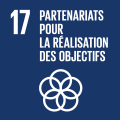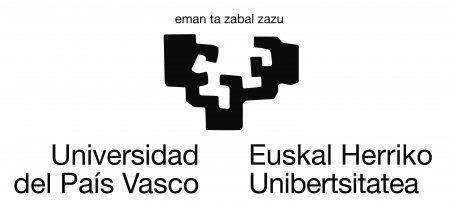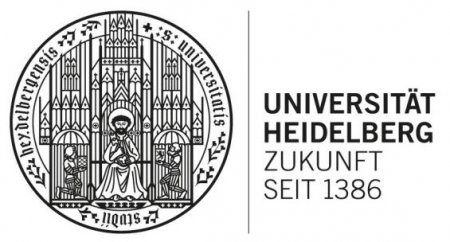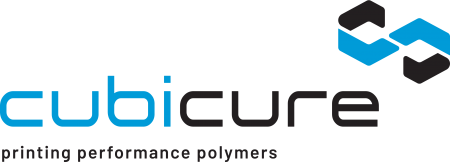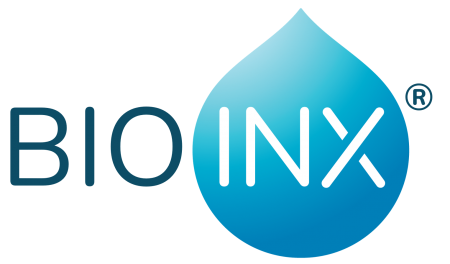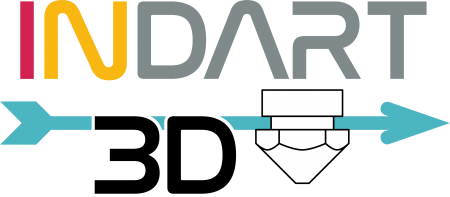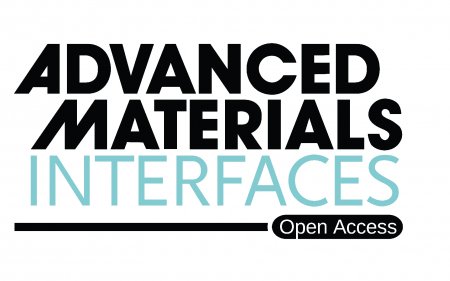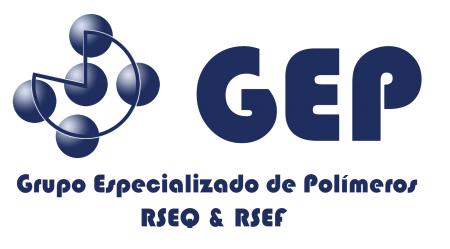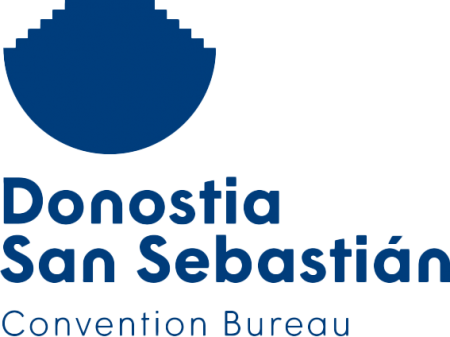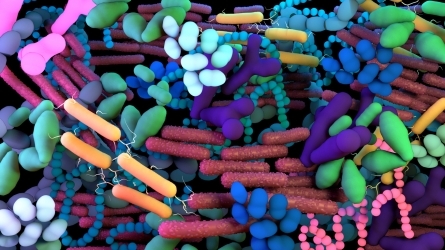
1st Edition Conference Series on Additive Manufacturing of Soft Materials
Join us in this five days conference with international speakers adressing the latest progresses on 3D Additive Manufacturing and its main impacts
Description
Registration is open!
Hurry up! San Sebastián (Spain) is hosting the inaugural edition of the Conference Series on Additive Manufacturing of Soft Materials, between October 6th and October 10th, 2025.
This conference will assemble diverse communities of researchers from both academia and industry. It plans to cover a broad scope of angles from new printing technologies and the integration of digital design, to multiscale simulations, artificial intelligence and machine learning, multimodality manufacturing methods, material synthesis, multi-material printing, composite manufacturing, and performance engineering materials. AM invites a diverse cadre of researchers, from sustainability scientists and manufacturing engineers to entrepreneurs, as well as drawing on a wide range of materials expertise—from thermosets, vitrimers, and thermoplastics to hydrogels, organogels, and composites— for various AM technologies.
While (AM) is advancing rapidly, the next generation of technologies geared toward soft materials demand the integration of different modalities including rheology, photopolymerization, material science, sustainability and beyond. This will advance the field of AM technologies to fully exploit their potential in fields such as aerospace, transportation, medicine, membrane technology or energy generation and storage. As AM technologies are set to play a crucial role in the advancement of modern manufacturing, it is also increasingly pertinent to consider environmental impacts during the development of smart sustainable materials of the future.
The conference is five days long and will be held in beautiful San Sebastian, Spain, from the 6th to the 10th of October 2025. In addition to premier talks and oral contributions, the conference has designated time for poster sessions from individuals of all career stages, and a one-day Symposium for Young Researchers (6th of October 2025) to facilitate the collaboration between a new generation of scientists working in AM technologies.
Plenary speakers include Emily Davidson / Princeton University, Sandra Van Vlierberghe / Ghent University, David Mecerreyes / University of the Basque Country, Tao Xie / Zhejiang University, Timothy Long / Arizona University.
Scientific committee includes Haritz Sardon / University of the Basque Country, Timothy Long / Arizona University, Eva Blasco / Heidelberg University.
The list of keynote and invited speakers is already available on our website.
Places are limited!
Objectives
Focus on the aspects of additive manufacturing/3D printing which are operating a paradigm shift in production: reduce centralized inventory and production; producing parts with specific properties and personalized functionalities; minimizing waste generation and enabling multi-material combinations.
Build a discussion on the environmental impacts of new technologies during the development of smart sustainable materials of the future.
Assemble diverse communities of researchers from both academia and industry and create a wider dialogue.
Involve a diverse cadre of researchers in terms of fields (sustainability scientists, manufacturing engineers, entrepreneurs) and career stage.
Involve a young audience and speakers for the first day symposium, dedicated only to young researchers to facilitate the collaboration with a new generation of scientists working in AM technologies.
Provide a safe environment for sharing research and ideas through premier talks, poster sessions, social activities and common meals.
Activity directed to
- University student
- Teachers
- Professionals
- Industrial companies
Methodology
The first day is reserved and dedicated only to presentations by young researchers and PhDs and will be held in Carlos Santamaria Zentroa.
From the second day the general conference begins in Miramar Palace, with 40 min plenary presentations, 30 min keynote presentations, 25 min. invited presentations and 15 min. participants presentations.
Two special sessions are dedicated to posters' exhibition, one of them enriched with cocktail aperitif.
Every day it is provided morning and afternoon coffee break plus midday lunch.
Directors

Haritz Sardon Muguruza
UPV/EHU
Prof Haritz Sardón is Professor in Polymat – UPV/EHU. He is an expert in polymer chemistry, focused on the synthesis of sustainable materials and the chemical recycling of mixed polymers. He has published more than 175 articles in peer-reviewed journals that have received more than 10000 citations with a H-index >55. He has supervised >9 post-docs, 11 PhD students and numerous master students. He is and has been involved in several European projects. Prof. Sardon works in close collaboration with international companies including IBM, BASF, Corbion, ElixPolymers, Wacker. Selected honours and awards include Prize of Excellence Young Researcher in Chemistry by the RSEQ (2021), ACS Macro Letters/Biomacromolecules /Macromolecules Award (2021), and Prize for Excellence of the Young Researcher in Polymers by the GEP (2020).
Speakers

Eva Blasco
Eva Blasco completed her doctorate at the University of Zaragoza (Spain). Then, with the an Alexander von Humboldt Postdoctoral Research Fellowship (2014), she carried out her research at the Karlsruhe Institute of Technology (KIT) in Germany. During this time, she spent a research stay in Brisbane (Australia) and subsequently worked as a group leader at KIT. In 2020, she was appointed Junior Professor at Heidelberg University and in 2023 she was appointed W3 Professor at the newly founded Institute for Molecular Systems Engineering and Advanced Materials (IMSEAM). She has published more than 100 publications and has been awarded several prizes. Furthermore, Prof. Eva Blasco is project leader (PI) and since 2023 co-spokesperson in the Cluster of Excellence 3D Matter Made to Order (3DMM2O). Her research interests include the development of new functional and sustainable polymer materials for 3D and 4D printing, especially on the micro- and nanoscale.

Emily Davidson
Emily Davidson is an Assistant Professor of Chemical and Biological Engineering at Princeton University. Her group’s research focuses on the directed assembly via 3D printing of nanostructured polymers, the assembly of liquid crystalline materials, and the development and depolymerization of sustainable polymers. Emily received her undergraduate degree in chemical engineering from MIT in 2010. From 2010-2012, she taught high school chemistry and physics through the Teach for America program. She then performed her graduate research at UC Berkeley (Ph.D. 2016) and UC Santa Barbara with Professor Rachel Segalman, followed by postdoctoral research (2017-2020) at Harvard University with Professor Jennifer Lewis. Emily has received several awards including the Scientista ‘Young Professional’ Award (2019), a DOE Early Career award (2022), and the Princeton School of Engineering Alfred Rheinstein Faculty Award (2023).

Timothy Long
Since 2020, Prof. Long has an interdisciplinary faculty position across the School of Molecular Sciences (SMS) and the School for Engineering Matter, Transport, and Energy (SEMTE) at Arizona State University (ASU) where he launched and now leads the Biodesign Center for Sustainable Macromolecular Materials and Manufacturing (BCSM3). In addition to over 440 peer-reviewed publications, his research awards include the 2023 3M Excellence in Adhesion Award, 2022 Paul J Flory Award, 2020 Virginia Outstanding Faculty Award and many others. His most recent research efforts address the need for tailored advanced macromolecules for advanced manufacturing (3D printing), including vat photopolymerization, direct ink write, binder jetting, powder bed fusion, and melt extrusion. His research ranges from controlled polymerization processes for block copolymers to high performance engineering polymers for emerging technology with a lens of earth sustainability.

David Mecerreyes Molero
POLYMAT
David Mecerreyes is an Ikerbasque Research Professor and Scientific Director at POLYMAT, University of the Basque Country in Spain. His actual research interests include the design of new polymers for applications in emerging technologies in energy, environment and bioelectronics. He has published over 400 peer-reviewed articles. His research interests include the design and additive manufacturing of ionic and electronic conducting polymers, redox polymers and ionic soft materials such as eutectogels. He serves as Associate Editor of the Journal ACS Applied Polymer Materials.

Haritz Sardon Muguruza
UPV/EHU
Prof Haritz Sardón is Professor in Polymat – UPV/EHU. He is an expert in polymer chemistry, focused on the synthesis of sustainable materials and the chemical recycling of mixed polymers. He has published more than 175 articles in peer-reviewed journals that have received more than 10000 citations with a H-index >55. He has supervised >9 post-docs, 11 PhD students and numerous master students. He is and has been involved in several European projects. Prof. Sardon works in close collaboration with international companies including IBM, BASF, Corbion, ElixPolymers, Wacker. Selected honours and awards include Prize of Excellence Young Researcher in Chemistry by the RSEQ (2021), ACS Macro Letters/Biomacromolecules /Macromolecules Award (2021), and Prize for Excellence of the Young Researcher in Polymers by the GEP (2020).

Sandra Van Vlierberghe
Prof. Dr. Sandra Van Vlierberghe is a leading researcher in the Polymer Chemistry & Biomaterials Group at Ghent University, Belgium. Her work centers around the development of photo-crosslinkable (bio)polymers and their processing through advanced (light-based) 3D printing techniques like DLP, VAM, and deposition-based methods. With over 290 publications and a Web of Science h-index of 51, she has supervised 40 PhD students (20 completed) and edited three books. She holds key roles in professional societies, including treasurer of the Belgian Polymer Group and council member of TERMIS-EU and ESB. Sandra is also president of the TERMIS-EU Communication and Outreach Committee and a founding board member of Ghent Advanced Therapies and Tissue Engineering. She received the prestigious Jean Leray Award from the European Society for Biomaterials in 2017.

Martin Wegener
After completing his Diplom and PhD in physics at Johann Wolfgang Goethe-Universität Frankfurt (Germany) in 1986 and 1987, respectively, Martin Wegener spent two years as a postdoc at AT&T Bell Laboratories in Holmdel (U.S.A.). From 1990-1995 he was professor at Universität Dortmund (Germany), since 1995 he is professor at Institute of Applied Physics of Karlsruhe Institute of Technology (KIT). Since 2001 he has a joint appointment as department head at Institute of Nanotechnology (INT) of KIT, from 2016-2022 he was one of three directors at INT. From 2001-2014 he was the coordinator of the DFG-Center for Functional Nanostructures (CFN) at KIT. Since 2018 he is spokesperson of the Cluster of Excellence 3D Matter Made to Order. His research interests comprise ultrafast optics, (extreme) nonlinear optics, optical laser lithography, photonic crystals, optical, mechanical, electronic, and thermodynamic metamaterials, as well as transformation physics.
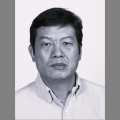
Tao Xie
Tao Xie is Qiushi chair professor at the College of Chemical & Biological Engineering, Zhejiang University. He obtained Ph. D from University of Massachusetts at Amherst in 2001. He had since worked at the General Motors Global Research Lab and HRL Laboratories before returning to China in 2013. He is the inventor of over 80 patent and a recipient of Omnova Solution award (2001), R&D 100 award (2013), and Wang Baoren Award (2019, Chinese Chemical Society). He is a fellow of ACS PMSE division and an Associate Editor for ACS Applied Materials & Interfaces.
Registration fees
| Registration | Until 31-08-2025 | Until 30-09-2025 |
|---|---|---|
| 575,00 EUR | 700,00 EUR | |
| 375,00 EUR | 500,00 EUR |
Venue
October 6th at Centro Carlos Santamaría / October 7th to 10th at Miramar Palace
Centro Carlos Santamaría, Plaza Elhuyar, 2. 20018 Donostia / San Sebastián / Palacio Miramar, Pº de Miraconcha nº 48. Donostia / San Sebastián
Gipuzkoa
October 6th at Centro Carlos Santamaría / October 7th to 10th at Miramar Palace
Centro Carlos Santamaría, Plaza Elhuyar, 2. 20018 Donostia / San Sebastián / Palacio Miramar, Pº de Miraconcha nº 48. Donostia / San Sebastián
Gipuzkoa
Sustainable development goals
Agenda 2030 is the new international development agenda approved in September 2015 by the United Nations. This agenda aims to be an instrument to favour sustainable human development all over the planet, and its main pillars are the eradication of poverty, a reduction in equality and vulnerability and fostering sustainability. It is a unique opportunity to transform the world up to 2030 and guarantee human rights for all.

9 - Industry, innovation and infrastructure
Build resilient infrastructures, promote inclusive and sustainable industrialisation and foster innovation. Key issues: reliable, sustainable, resilient and quality infrastructures, inclusive and sustainable industrialisation, modernisation, clean and environmentally rational industrial technologies and processes, scientific research and improvement of technological capabilities, universal access to ICTs.
More information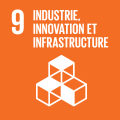
12 - Responsible consumption and production
Guarantee sustainable modalities of consumption and production. Key issues: sustainable management and efficient use of natural resources, reduction of chemical particles released to the atmosphere, water and soils, reduction of waste products, recycling, reuse and reduction, sustainable practices, sustainable public procurement, sustainable lifestyles, rationalisation of inefficient subsidies for fossil fuels.
More information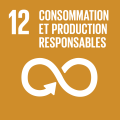
17 - Partnerships for the goals
Strengthen the means of implementation and revitalise the World Alliance for Sustainable Development. Key issues: mobilisation of resources, 0.7% of GDP for official overseas development aid, finances, cooperation in technology and innovation, ecologically rational technologies, skills building, universal and multilateral trade system, coherence on the legislative and institutional levels, availability of data, supervision, indicators and accountability.
More information